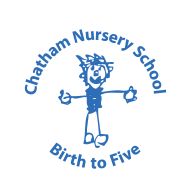This policy links to: The Early Years Foundation Stage (Dfe2021) Statutory Framework – Setting the standards for learning, development and care for children from birth to five years old.
Language Learning
We recognise the fact that a child may enter our setting who is already developing one or more language other than English. We always allow these children extra space and time, patience, and support. We work in partnership with parents to support and celebrate the home language of your child. Speaking two or more languages is a gift and we are keen to acknowledge and encourage both the childs home language and English. We believe this promotes confidence in their own abilities and raises their self-esteem. We recognise and reassure parents that their children will benefit if
they use, maintain and develop their ‘home’ language and we encourage them to spend time in this interaction with their child. We invite parents to share their home language and cultural background with staff and other children in the nursery through visits and participation in activities. Parents
are invited to provide a list of key words and phrases or translations of these, to assist the child’s transition into Nursery.
All staff have iPads and will use a translate programme to aid communication with families and children.
We have culturally sensitive resources, and several staff speak more than one language which enables communication with parents/carers to be more effective and meaningful
Social Skills
Children who share the same home language are encouraged and enabled to spend time together in the nursery to communicate. All staff ensure they make their teaching as visual as possible through the provision of pictorial and additional resources to assist EAL children and to enable them to fully
access the inclusive learning environment. Staff and children benefit from accessing weekly Time 2 Sign sessions. These sessions provide British Sign Language (BSL) classes for young children and staff. These unique classes provide a foundation for speech and language and help all with children’s language development. All staff ensure they use gestures, facial expressions, and explanatory actions together with the use of real objects to explain each part of an activity.
Introduction
Staff and the child’s Key Person seek to find out as much as possible about the child, their strengths and individual needs. This includes details such as their correct name and pronunciation, dietary needs, dress code and previous early years setting experience. We offer support and assistance in
completing the setting’s Registration Form if required and continue to liaise with the family to ensure that they receive information and pictorial newsletters in a form that is accessible to them. This will encourage them to communicate their views and concerns to the staff without difficulty.
Language Development
We assess children’s English knowledge and understanding using WellComm tool and differentiate their learning input based on their language level
We differentiate between those children who speak English as an additional language or those who are bilingual by using the following definitions as provided by the Department of Education. EAL stands for English as an additional language and recognises the fact that many children that learn
English in schools in this country already know one or more other languages and are adding English to that repertoire. Within our rooms there will be a spectrum of children from those who are new to the country, children who are learning to speak English alongside their home language, and children who are fluent in English and their home language. Bilingual refers to those children who have access to more than one language at home and at school. It does not necessarily imply full fluency in both or all of their languages. Should a child start Nursery as either an EAL or Bilingual speaker we will add their name to our EAL Register and monitor and track their progress during their Baseline and termly data collection exercise.
This policy was agreed and implemented on June 2024 and is due for review June 2025

